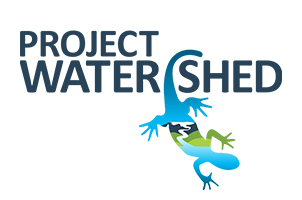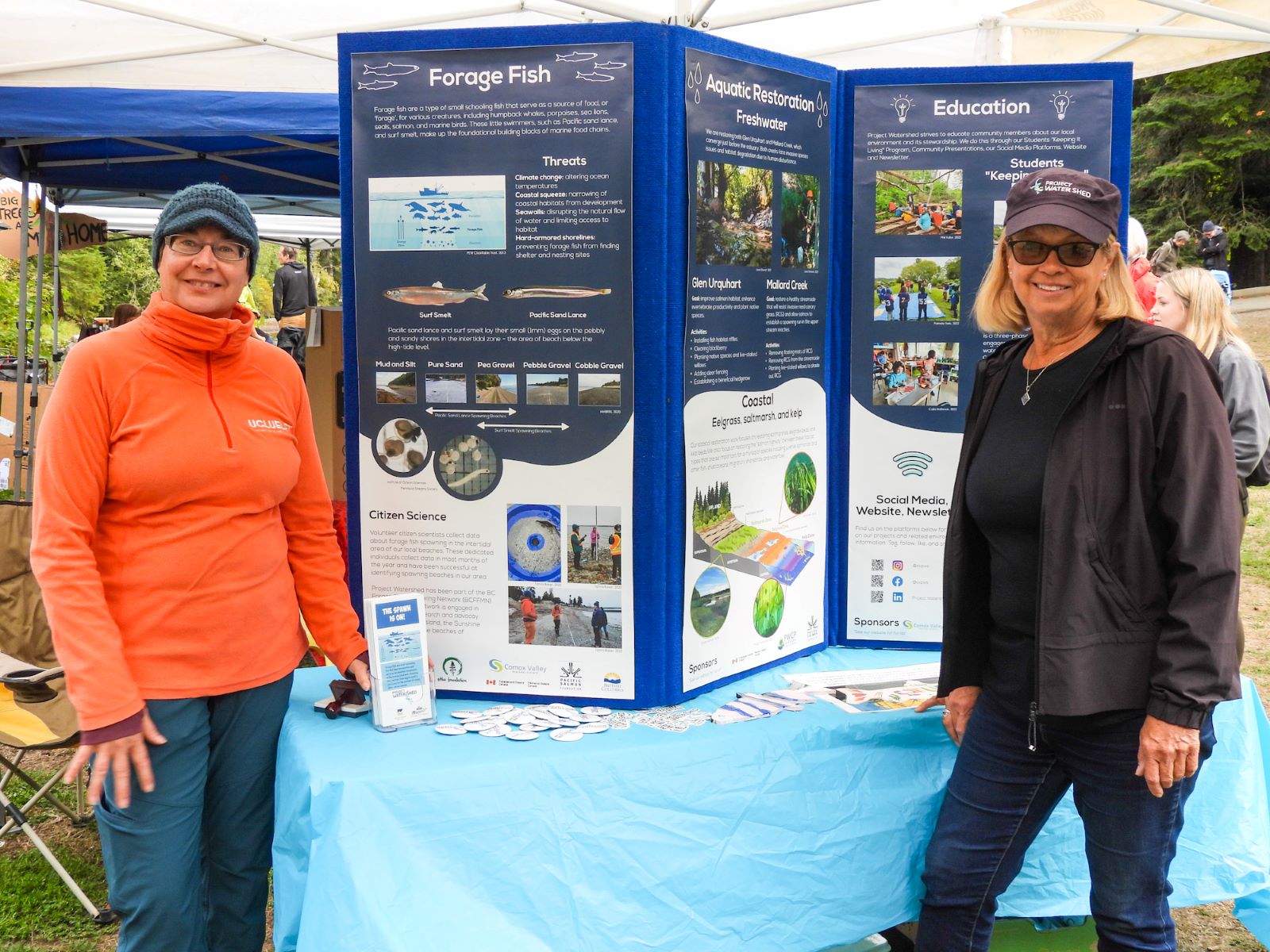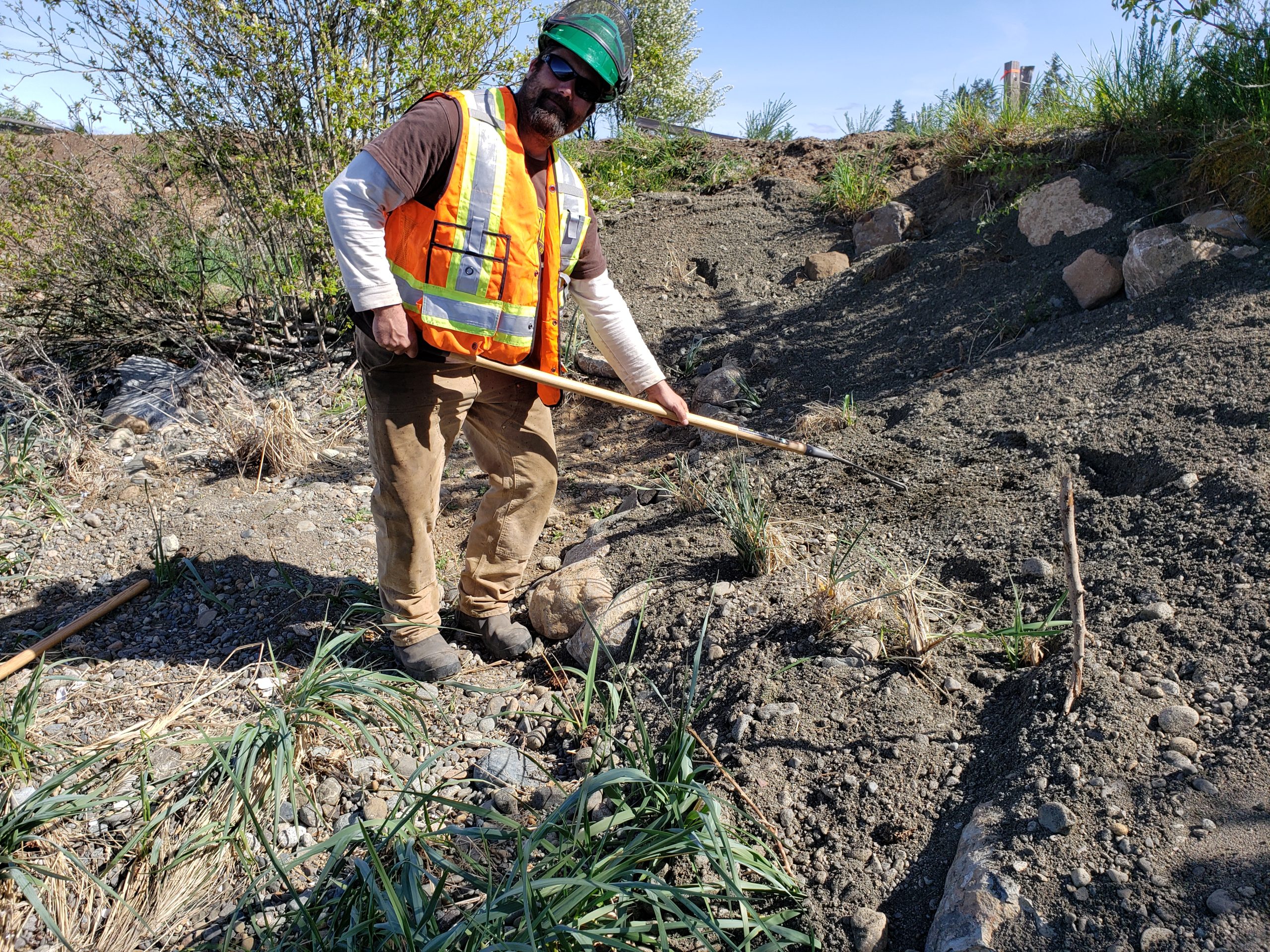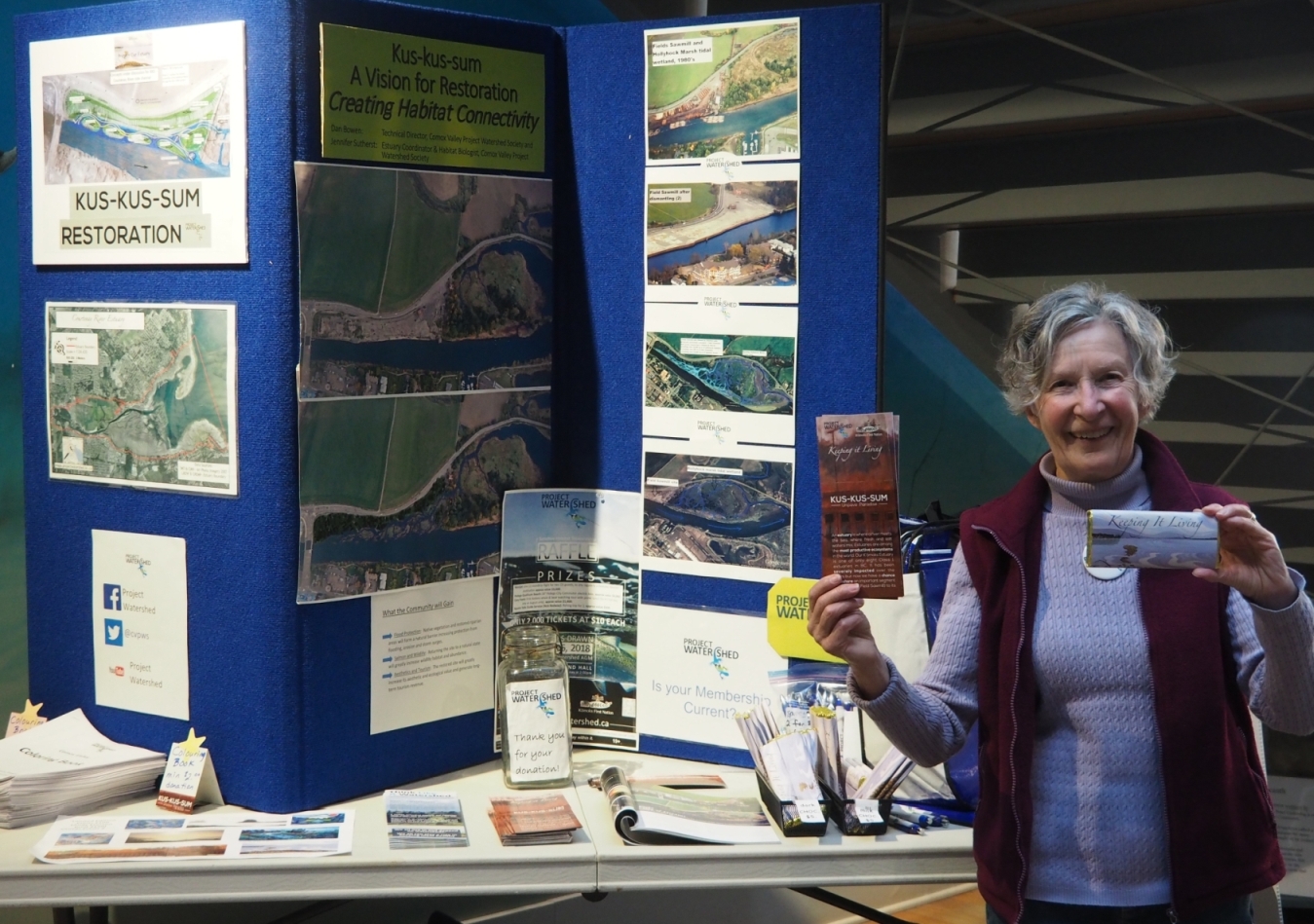Volunteer Guide
programs, policies, practices and procedures
Thanks for choosing to donate your time to volunteering with Project Watershed!
We have created a digital volunteer guide to help orient you to our operations with links to our confidentiality agreement and other important documents.
Volunteer Guide
One of the primary strengths of Project Watershed is the commitment and professionalism of its volunteers. Project Watershed places a high value on the well-being of its volunteers and is committed to creating a workplace wherein all volunteers are treated with humanity, fairness and dignity.
We ask that each volunteer make himself or herself familiar with this information on a regular basis.
Volunteer Responsibilities and Benefits
As a Project Watershed volunteer, you have the responsibility to:
- Let the volunteer coordinator know if you cannot make the volunteer activity that you commit to.
- Track your time spent on activities – this helps us leverage funds, report out on our projects and highlight those who go above and beyond!
- Be respectful, helpful and honest with the public and fellow volunteers
As a Project Watershed volunteer you have the right to:
- Be treated with respect, dignity and clarity.
- Be informed about your requirements, schedules and skills required.
- Be comfortable with the job assigned to you.
- Be recognized for your contribution and have the opportunity to request a change to your volunteer position.
- Attend our yearly Volunteer Appreciation Event and semi regular Volunteer Symposiums
All volunteers will receive our monthly newsletter detailing upcoming opportunities as well as addtional volunteer requests as needed to fill activities.
Prohibited Behaviors
Any of the following prohibited behaviors can result in discharge without notice:
- Threats to the rights and safety of others, including both verbal and physical acts.
- Stealing or misuse of Project Watershed funds or property, or the property of others, or incurring unauthorized expenditures.
- Language or actions which are inappropriate to the workplace or which create a racially or sexually harassing environment.
- Violation of client, donor or organization confidentiality.
- Violations of safety rules or the gross or intentional endangerment of the safety of self or co-workers.
Substance Abuse
It is the policy of Project Watershed to maintain an environment free of the use, sale or possession of controlled substances and illegal drugs. Unlawful manufacture, distribution, dispensation, possession, or use of controlled substances or illegal drugs by volunteers of Project Watershed on Project Watershed business is prohibited.
Safety and Health
Project Watershed is committed to providing safe working conditions for its volunteers. Project Watershed will not knowingly permit unsafe conditions to exist, nor will it permit volunteers to be involved in unsafe acts.
Accident Reporting
Volunteers must report all work-related accidents or illness to the Project Watershed Staff onsite regardless of how minor. If a work-related injury or illness requires medical attention by a physician or medical facility the onsite Staff will assit the volunteer in receiving that attention and if nesseccary contact the vonuteers emergency contact person.
Smoking and Vaping in the Workplace
Volunteers may not smoke or vape in shared workspaces, common areas, or areas that may be designated as fire/physical hazards or where it violates any by-laws.
Communications
General Policy
Project Watershed encourages an open environment in which all volunteers, members, employees and Board Members can express themselves; where issues are raised and responded to in an appropriate and timely manner; and where everyone is treated with respect and dignity. We believe that open communication produces a richer and more productive workplace, enhances the quality of decisions, and ultimately improves the quality and value of the work we do in the community. All volunteers will use open communication to build cooperative working relationships and solve problems and that may arise.
Confidentiality
Volunteer members are responsible for the protection of confidential information gained through their duties at Project Watershed, including any confidential information related to Project Watershed’s operations, directors, officers, volunteers, donor or clients. Wherever possible, supervisors will advise volunteers as to areas of confidence. It is the responsibility of the volunteer, when in doubt, to seek clarification from the Volunteer Coordinator.
Public Representation of Project Watershed
Every volunteer is an ambassador for Project Watershed and, as such, is expected to speak positively and professionally about the organization.
No volunteer may officially represent Project Watershed. This includes, but is not limited to:
- speaking on behalf of the organization at public meetings
- speaking on behalf of the organization to representatives of the media
- using the corporate logo or letterhead,
- submitting a press release,
- signing a document on behalf of the organization.
It is the responsibility of the volunteer, when in doubt, to seek clarification from the Volunteer Coordinator.
Referrals
Project Watershed’s volunteers often receive public requests for information via telephone or in person. When the volunteer is unable to provide that information, they will refer the request to the Volunteer Coordinator. Every effort will be made by the volunteer to ensure that the requestor’s needs are adequately met.
Dealing with Conflict
A volunteer who finds him/herself in a situation of real or potential conflict, controversy, or discomfort with a member, Board Member, volunteer or member of the public must report the situation immediately to their supervisor. The volunteer will be asked to give a description of the situation to the Volunteer Coordinator within one (1) working day of the occurrence.
The Volunteer Coordinator may:
- Advise the volunteer as to an acceptable course of action to pursue in order to resolve the conflict
- Proceed on behalf of the volunteer to seek resolution to the conflict
- Call a meeting with the other party to hear “both sides of the story”
- Offer independent mediation to the volunteer and other party
- Refer the matter to the Board of Directors.
In any case, the volunteer will be advised as to what steps have been taken and will be involved in decision-making wherever possible.
Volunteer Development
It is the policy of Project Watershed to assist volunteers to increase the effectiveness of their performance in their positions, as well as to encourage volunteers to obtain skills, knowledge, and abilities that may improve their opportunities for career advancement.
At the discretion of the Volunteer Coordinator such opportunities may include on-the-job training, courses, seminars, conferences, lectures, meetings, workshops and participation in professional and technical associations.
Each volunteer has the primary responsibility for individual development and should make his/her training and development interests known to the Volunteer Coordinator.
Use of Equipment
Project Watershed is committed to maintaining its leadership role in the use of state-of-the-art watershed stewardship equipment. It is of utmost importance that equipment be treated with care and respect at all times.
Watershed Mapping Field Equipment
Project Watershed owns and maintains a wide array of field equipment, including: Trimble GPS units, Garmin GPS units, clinometers, compasses, tight chains, field vests, notebooks, hip waders, etc., to perform its work.
Field equipment will be issued to technical volunteers by the Program Co-ordinator as required for the performance of their job. The Program Co-ordinator will ensure that volunteers receive adequate training in the use and maintenance of the equipment. The Program Co-ordinator will maintain an inventory of all such equipment and attend to maintenance requirements.
The volunteers are responsible for:
- obtaining adequate instruction in the correct usage of the equipment
- operating, transporting and storing the equipment in a proper and safe manner
- using the equipment for assigned project-related work only
- reporting any repair or replacement needs to their supervisor
- returning the equipment in excellent working order at the completion of a project.
Computer Equipment
Volunteers using computer equipment are responsible for:
- obtaining adequate instruction in the correct usage of the computer, software & accessories, either from their supervisor or from another volunteer person designated by their supervisor
- operating the equipment in a proper and safe manner
- reporting any repair or replacement needs to their supervisor
Personal Use of Telephone Equipment
Project Watershed’s telephone lines are solely for the purpose of conducting the business of the society. Accordingly, volunteers shall not use Project Watershed telephone lines for personal calls longer than five minutes per day and shall not charge any personal long-distance telephone calls to Project Watershed. Volunteers shall not use Project Watershed’s e-mail, fax or computers for any personal business unless prior permission is obtained from the Volunteer Coordinator.
Below is an example of the types of volunteer opportunities that we have. Training will be provided, and your role can change from time to time if you wish.
Booth Participation
2-3 hour shifts greeting visitors to our information booth at various events throughout the Valley. Volunteers will get in free for events.
Citizen Science Monitoring
We have a variety of citizen science projects for volunteers to participate in that generally change with the seasons. Volunteers will be given a demonstration of the protocol and the data collected helps us track the level of success our restoration projects have or if more work may be needed at one of our project sites.
Specific opportunities include:
- Eelgrass monitoring
- Pinniped monitoring
- Forage fish surveys
Events - Coordinators and Assistants
Coordinators take the lead in organizing an area such as food or ticket sales for special events and assistants will help set up, tear down and run the event.
Newt Mascot
We have a new, beautiful, and comfortable Newt Mascot costume. We are looking for volunteers to wear the costume at public events. If you like having fun, being goofy with kids, and getting high fives from those around you, this is for you!
Ongoing Office Related Activities
This includes a wide variety of activities that can be done from the office or at home including library organization, editing, stapling, labeling, dropping off or pick up items.
Outdoor Activities
These are project based and change over time. Most include either restoration, research or assessment. Volunteer needs to be in good physical health.
Photography/Videography/Media
Taking photos and/or videos at events. Transferring those photos and videos to Project Watershed in a timely manner. Giving Project Watershed the right to use them free of charge for any and all purposes they see fit. Credit will be given to the photographer.
Planting Eelgrass, Salt Marsh and Native Upland Plants
Working in or near the intertidal area or along streams to plant species as directed by Project Watershed Staff or a member of the Board of Directors who is onsite.
Background
Project Watershed is an enterprising non-profit society that was established in 1993 by a small group of citizens concerned by declining fish stocks, water quality, and rapid urban development in Comox Valley watersheds. Often working in partnership with local stewardship organizations, industry and all levels of government, we promote community stewardship through education, information and action projects. We offer professional conservation mapping and related technical services, host regular Streamkeeper & Wetlandkeeper courses, maintain a stewardship information library, and currently manage research, restoration, assessment, protection and awareness raising projects in the K’ómoks Estuary and Puntledge River watershed.
Partnering with like-minded organizations we maintain offices at the “Comox Valley Conservation Center” at 2356A Rosewall Crescent in Courtenay, along with the Comox Valley Conservation Society, the Comox Valley Land Trust, and the Tsolum River Restoration Society.
Project Watershed Society has undertaken numerous projects in partnership with both the federal and provincial governments. We have operated under grants from the BC Ministry of Environment, Lands & Parks, Ministry of Transportation – Vancouver Island Highway Project, BC Ministry of Agriculture and Food, Ministry of Fisheries, Ministry of Community Development, Cooperatives & Volunteers, and we are current recipients of a Direct Access Grant from the Gaming Policy and Enforcement Branch of the Ministry of Housing and Social Development. From the Government of Canada, we have received numerous grants from Environment Canada from the Habitat Stewardship for Species at Risk Program, and the Eco-Action Program, and from Fisheries and Oceans Canada we have received grants from the Public Involvement Program, the Habitat Restoration, and Salmon Enhancement Program as well as Human Resources Development Canada through a Local Labour Market Partnership Project. Find out about our past and present projects on our website.
Many projects are dependent on funding and change throughout the year. We also have ongoing initiatives which include the following:
- Promoting community stewardship of every watershed from Oyster River to Deep Bay Creek,
- Providing and promoting environmental education and research,
- Acquiring and disseminating environmental information,
- Enhancing community understanding of local ecosystems and recognition of the requirements of indigenous species,
- Improving awareness of local action opportunities in watershed stewardship,
- Providing and promoting employment opportunities in sustainable watershed activities,
- Working with government agencies, private companies, and other interest groups to conserve, restore, and develop habitat for indigenous fish, flora, and fauna, and
- Encouraging all ages and cultures to become involved in community stewardship of watersheds.
Our Projects
We are a project-based organisation that focuses on sensitive habitat.
Donations
We accept cheques, e-transfers, cash, credit and debit. Credit and debit cards can be used with our Square Reader device on location or on our website through Paypal.
Keeping it Living Sponsors – Sponsors receive art of their choice, tax receipts (donations over $25) and recognition on our website, and social media platforms. They can elect a specific project to fund or their funds can go towards general revenue.
Sponsor A Salmon – Minimum donation $25 – A painted wooden salmon goes up on the Kus-kus-sum fence and the donor receives a tax receipt and recognition on our social media platforms. All donations go to the Kus-kus-sum project. Business salmon are also available for a minimum of $500.
Ecards for the Environment – A card will be sent to a special someone when you make a donation.
Donate a Car – Individuals can donate a car and the funds from selling the car will go towards Project Watershed.
Securities/Legacy Gifts – Individuals can also donate securities and legacy gifts.
Memership
Membership helps us to gauge community support for the work we do
and to leverage financial support for our projects.
Membership benefits include:
- A subscription to Project Watershed News Letter
- Allowing members to vote on issues at our AGM.
- Receiving notices and updates about environmental news and events
- Being on our insurance so that you are covered when volunteering with us
Costs: $ 20 Individual, $ 30 Family/NonProfit/Farm, $ 50 Business
Conservation Centre Groups
Project Watershed shares offices and often works in partnership with other conservation groups.
Comox Valley Land Trust
The Comox Valley Land Trust is an organization of local volunteers dedicated to protecting the Comox Valley’s heritage of land and resources through voluntary conservation.
Comox Valley Conservation Strategy
The Comox Valley Conservation Strategy (CVCS) is a regional conservation planning framework, first initiated to stop the loss of ecological areas in the Comox Valley by promoting the conservation and restoration of land and water ecosystems.
Tsolum River Restoration Society
The Tsolum River Restoration Society works to restore the health and productivity of the Tsolum River to historic levels.





